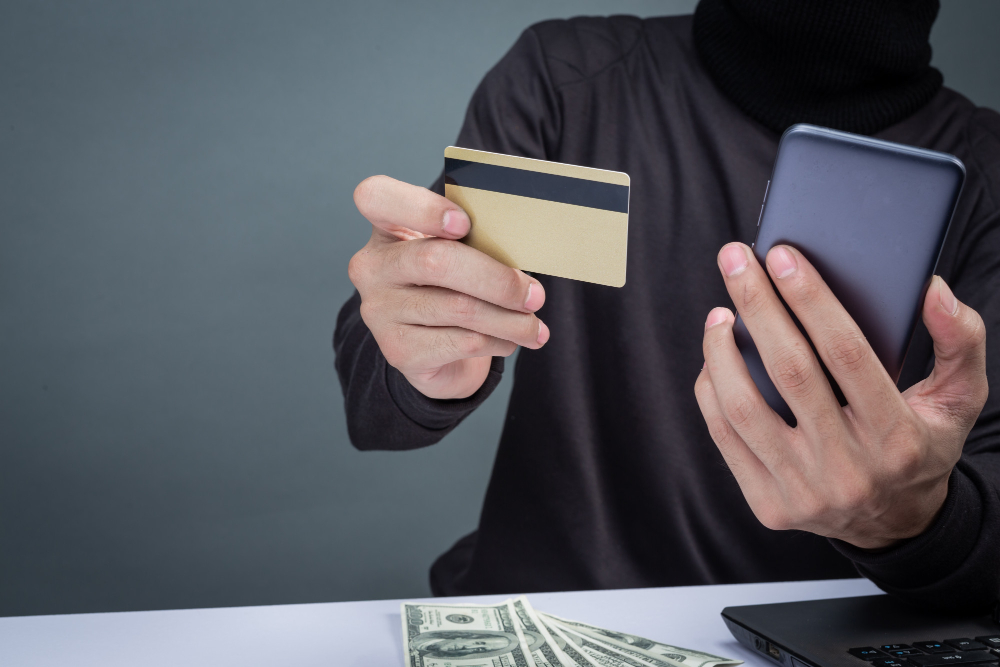Introduction
Purchasing someone else's tradelines is a common practice in the U.S. personal credit market. It involves adding a person as an authorized user to another person's credit card with a good payment history. In theory, this can quickly improve a credit score, but such operations carry a high risk of fraud and legal consequences. In this article, we will examine the main types of fraud related to buying tradelines, their legal implications, methods to verify a seller’s credibility, and tips for safely using this method.
What Are Tradelines and Why People Buy Them
A tradeline is a record in a credit report that reflects an active credit account (e.g., a credit card or loan). Adding someone as an authorized user to another person's credit account can raise the credit score, as credit bureaus consider the account’s age, payment history, and credit limit.
This is especially relevant for:
- New immigrants without any credit history;
- Individuals with poor or damaged credit scores;
- Young people opening financial products for the first time.
Buying such a tradeline provides an opportunity to quickly enhance a credit profile without opening a new account or waiting months to build credit history.
Legal Aspects of Buying Tradelines in the U.S.
In the U.S., purchasing tradelines is not directly prohibited by law, but using them for fraudulent purposes is considered a criminal offense. For example:
- Using false information to obtain credit is fraud under 18 U.S. Code § 1344.
- Using a stolen identity or fake documents violates federal law.
- Some banks prohibit adding authorized users to manipulate credit scores and deceive lenders.
The Federal Trade Commission (FTC) and the Consumer Financial Protection Bureau (CFPB) warn against possible legal violations when buying tradelines from unverified sellers.
Main Fraud Risks
- Incorrect information about the lender or account;
- Forged documents or personal data;
- Use of stolen accounts without the owner's consent;
- Promises of results with no actual reporting to credit bureaus.
Most Common Fraud Schemes
- Phantom accounts: the client pays for a tradeline that never existed or is not reported to credit bureaus.
- Identity theft: the buyer is added to a victim's account without their knowledge, which is a criminal offense.
- Fake agencies: companies that advertise "legitimate tradelines" but do not deliver any services.
- Temporary access: the user is added for 2–3 days and then removed before the data is reported.
How to Verify Seller Credibility
- Request a written agreement and check all conditions.
- Verify the seller’s website domain (should be a business domain, not gmail/yahoo).
- Look for reviews on Trustpilot, BBB, Reddit.
- Check for a money-back guarantee if results are not delivered.
- Confirm the company’s registration and physical business address.
Protective Tools
- Regular monitoring of your credit report with Experian, Equifax, and TransUnion;
- Use of licensed financial services;
- Two-factor authentication and protection of personal data;
- Activating a credit freeze in case of suspected fraud.
Recommendations for Buyers
- Do not trust offers on social media without verification;
- Always consult a lawyer before making any payments;
- Never disclose your SSN unless you fully trust the seller;
- Avoid services promising “instant credit score boost”;
- Request proof that you have been added to the tradeline and check your report within 30–45 days.
The Role of an Attorney
If you have been a victim of fraud or are unsure about the legality of an agreement, contact a consumer protection or credit dispute attorney. A lawyer can help you:
- Draft formal complaints to fraudulent companies;
- File a complaint with the CFPB or FTC;
- Dispute tradeline records in your credit report;
- Prepare a legal claim or demand for a refund.
Real Cases of Tradeline Fraud
To better understand the risks, let’s look at real-life cases. In 2022, the CFPB reported numerous complaints from individuals who purchased access to “elite” tradelines, but none of them were reflected in their credit reports. Customers lost between $500 and $3000 without receiving the promised results. Most cases were not compensated, as the deals were made informally or through social media.
Another well-known case involved a fraudulent company selling access to accounts opened with fake documents. After regulators stepped in, over 2,000 victims were identified, many of whom were suspected of credit fraud without realizing it.
One more risk is being blacklisted by credit bureaus. If Equifax or TransUnion detect suspicious activity involving authorized users, your credit profile may be temporarily frozen, making it impossible to obtain new loans or a mortgage.
Why Banks Are Blocking Such Transactions
Major credit card issuers (such as American Express, Discover, and Barclays) are increasingly cracking down on the mass addition of authorized users. The reasons include rising abuse and attempts to bypass traditional credit evaluations. Some banks now limit the number of authorized users or require proof of family relationship between the cardholder and the added user.
Additionally, some banks completely exclude authorized users from credit reporting. This means that even after being added to a tradeline, your credit history might not update — making the purchase a waste of money.
Alternative Ways to Build Credit from Scratch
If you’re not ready to take risks or have already had a bad experience with tradelines, consider safer alternatives:
- Open a secured credit card with a $200–$500 deposit. After 6 months of responsible use, your credit score will likely improve.
- Use services that report rent and utility payments to bureaus (e.g., Experian Boost, Rental Kharma).
- Apply for credit builder loans — small installment loans designed to establish credit history.
These methods are fully legal, do not require third-party involvement, and allow for sustainable credit building without fraud risks.
Using tradelines can be an effective way to boost your credit score — but only if done legally and through trusted providers. The risk of falling victim to fraud increases with anonymous services or shady sellers. Legal support, financial literacy, and attention to detail are the cornerstones of your protection. Don’t agree to suspicious deals without fully understanding the consequences. Instead of chasing short-term gains, choose stability, transparency, and safety.





























